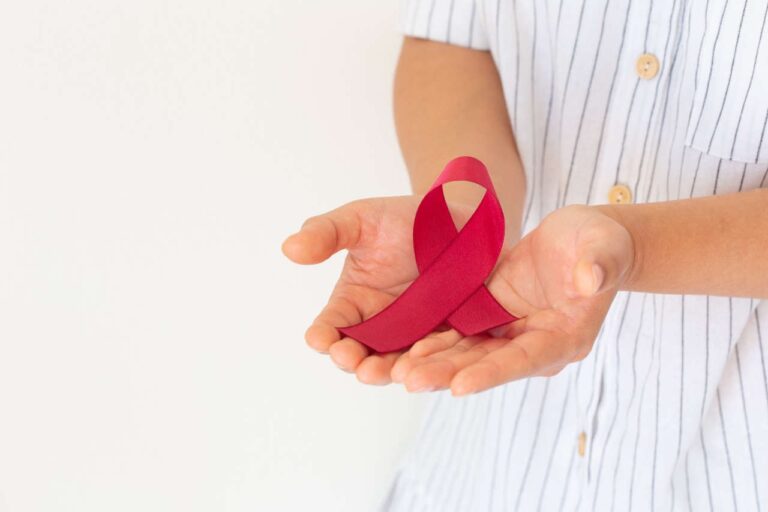
Mitomycin is a chemotherapy drug used to treat cancer of the stomach and pancreas. It may also be used in people with other cancers.
Mitomycin (also called mitomycin-C) is the generic name of an anticancer medication. It is in a class of medicines called antineoplastic antibiotics. The United States Adopted Names (USAN) Council assigns a drug’s generic name (do not confuse it with a generic version). A generic name is an official name assigned by the United States Adopted Names (USAN) Council. On the other hand, a generic version is a product that contains exactly the same active ingredient as the brand-name product.
Brands that contain this medication include:
- Mutamycin (IV injection)
- Jelmyto (ureteral catheter or nephrostomy tube administration)
- Mitosol (ophthalmic solution for topical administration)
Generic versions may also be available.
What Is Mitomycin Used To Treat?
Mitomycin injection is used with other medicines to treat stomach and pancreatic cancer when other treatments have failed, or cancer has spread to distant body parts.
Jelmyto (mitomycin pyelocalyceal) is FDA-approved to treat a certain type of cancer in the upper urinary tract.
Mitosol is an ophthalmic liquid applied topically to the eye during glaucoma surgery (trabeculectomy).
Can Mitomycin Be Used for Bladder Cancer?
Your doctor may prescribe mitomycin to treat a specific type of bladder cancer in a process known as chemo-hyperthermia bladder treatment. In this process, a healthcare professional administers the drug directly into your bladder using a flexible tube (catheter).
Chemo-hyperthermia bladder treatment does not cause any major issues for most users. However, some may experience side effects, including:
- Burning when passing urine
- Passing urine more frequently
- Blood in urine
- Urinary tract infection (symptoms include fever and cloudy urine)
What Are the Other Uses of Mitomycin?
Sometimes, your doctor may prescribe mitomycin injection to treat:
- Anal cancer (cancer that begins in the cells of the anus)
- Cervical cancer (cancer that begins in the cells of the cervix)
- Non-small cell lung cancer/NSCLC (a type of lung cancer)
- Malignant mesothelioma (cancer in the lining of the lung, chest, or abdomen)
How Does Mitomycin Work?
Mitomycin prevents cancer cells from making genetic materials essential for their survival and growth.
How is Mitomycin Supplied and Used?
Mitomycin injection is available as a dry powder to be dissolved in sterile water before administration.
This medication comes in three strengths:
- 5 mg
- 20 mg
- 40 mg
A doctor or nurse will prepare a solution by adding water to the vial. Then they will inject the solution into your vein (intravenous/IV).
What Should You Know Before Taking Mitomycin?
Before receiving your first dose, inform your doctor if you have:
- A history of allergy to this medication or other ingredients in the product
- A bleeding disorder
- Had kidney disease
Dosage
Mitomycin Injection Adult Dosage
- Stomach or pancreatic cancer: 20 mg/m² IV every 6 to 8 weeks with other medicines. Your doctor may reduce the dose if your blood counts are low. They may discontinue therapy if your condition does not improve after two courses.
Կողմնակի ազդեցություններ
Side effects can be mild or severe.
Հաճախակի կողմնակի ազդեցություններ

- Fever or other signs of infection
- Սրտխառնոց
- Փսխում
- Լուծ
- Ախորժակի կորուստ
- Քաշի կորուստ
- Բերանի խոցեր
- Քնկոտություն
- Գլխացավ
- Մշուշոտ տեսողություն
- Temporary hair loss
Talk to your doctor or pharmacist if any of these side effects worsen or persist.
Լուրջ կողմնակի ազդեցություններ
Increased risk of infection or bleeding
Mitomycin injection can severely decrease the number of blood cells, leading to a higher risk of infection or bleeding. Seek immediate medical care if you have:
- Fever or other signs of infection, like sore throat, persistent cough and congestion, chills, or breathing difficulty
- Unusual bleeding or bruising
Hemolytic Uremic Syndrome (HUS)
HUS is a potentially life-threatening situation that can cause irreversible kidney damage. Seek immediate medical care if you have:
- Red or bloody stools or diarrhea
- Decreased urination
- Rapid weight gain
- Swelling of the face, arms, hands, feet, ankles, or lower legs
- Unusual tiredness or weakness
Heart failure
Seek immediate medical care if you have:
- Շնչառության դժվարություն
- Fatigue and weakness
- Swelling in the legs, ankles, and feet
- Rapid or irregular heartbeat
- Wheezing
- Persistent cough
- Swelling of the belly area
Ալերգիկ ռեակցիա
Seek emergency medical care if you have:
- Swollen tongue, mouth, or throat
- Մեղվափեթակներ
- Breathing difficulty or shortness of breath
- Wheezing
- Tightness in your chest
Severe injection site reactions
Call your doctor immediately if you develop pain, itching, redness, swelling, blisters, or sores near the injection site.
Lung damage
There have been a few reports of severe and potentially life-threatening lung toxicity. Seek immediate medical care if you have:
- Dry cough
- Շնչառության դժվարություն
Postmarketing experience
Once a medicine reaches the market following approval, users may voluntarily report side effects to the manufacturer or the FDA. This practice is known as postmarketing surveillance (PMS).
Users have reported the following adverse effects:
- Malaise (a feeling of illness)
- Asthenia (physical weakness)
Use in Pregnancy, Lactation, and Children
Mitomycin injection may cause fetal harm. Use effective contraception during treatment, and tell your doctor if you become pregnant. Avoid breastfeeding while taking this medication. Safety and efficacy in children have not been established.
If you use mitomycin, use effective contraception during treatment and for 6 months after the last dose. Males with partners of reproductive potential should use contraception during treatment and for 3 months after the last dose.
Women who use Jelmyto should not breastfeed during treatment and for 7 days after the last dose. Mutamycin is also not recommended to be used during breastfeeding.
How Much Does Mitomycin Cost?
The cost of mitomycin injection can vary depending on your insurance plan, location, and pharmacy. Contact your insurance provider to find out if your plan covers this medication or if you need prior authorization.












